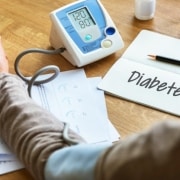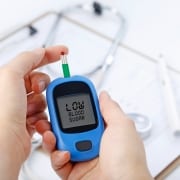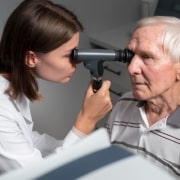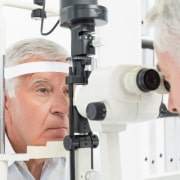Newly Diagnosed? The Impact of Diabetes on Vision
If you are a newly diagnosed person with diabetes, you face a wide range of questions and concerns to address. One of these needs to be your optical health. When left unchecked, diabetes can lead to a range of visual problems, including several conditions that can cause blindness. To protect your vision, you need to be aware of how diabetes impacts your sight and what you can do about it.
High Blood Sugar Can Damage the Retina
High blood sugar levels can cause a couple of problems with the retina. One is diabetic macular edema or DME. This occurs when fluid leaks into the macula, a part of the retina. This fluid distorts or blurs the vision, and it can lead to blindness if left untreated.
The second impact on the retina is diabetic retinopathy. The leading cause of blindness in adults, this condition affects the blood vessels in the retina. High sugar levels cause swelling and leaking, which can cause vision loss. Getting regular checks from an eye doctor in Champaign, IL, is vital to protect against these two issues.
Glaucoma and Cataracts
People with diabetes are also at higher risk for developing glaucoma and cataracts. Both of these conditions can be permanently damaging if left untreated.
Regular Diabetic Vision Screenings Are a Must
Because of the risk of these conditions, people with diabetes need to have regular vision screenings. Your eye doctor in Champaign, IL, at Champaign Eye Professionals will likely want to dilate your eyes in order to check the health of the retina. We will do a thorough eye exam to ensure you are not developing these conditions. In addition, we will encourage you to work with your endocrinologist to keep your blood sugar levels in check so you have less risk of vision damage.
Being newly diagnosed is challenging, but with diabetic eye care from Champaign Eye Professionals, you can proactively protect your sight, in spite of your new diagnosis.










